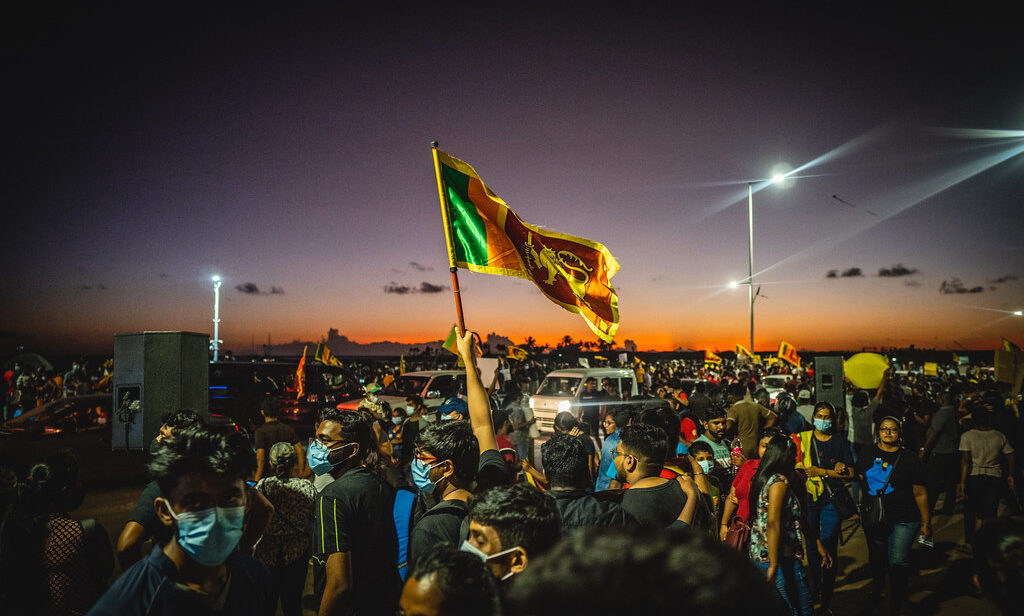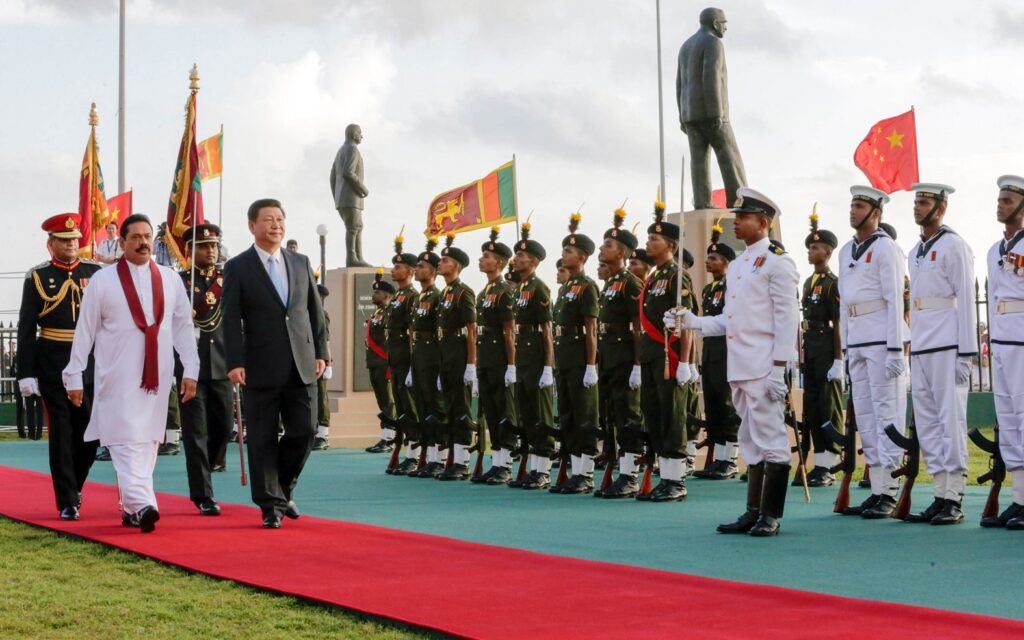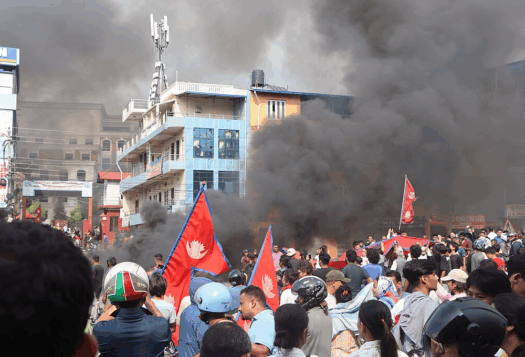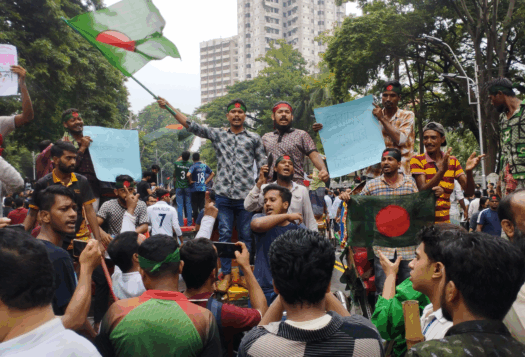
Sri Lanka is scheduled for its next presidential election between September and October 2024. Its previous presidential poll in November 2019 saw Gotabaya Rajapaksa easily elected. Yet massive anti-government protests related to inflation and scarcity forced President Rajapaksa to flee the country in July 2022. This was after Prime Minister Mahinda Rajapaksa — his brother who was president from 2005 to 2015 — had fled two months before.
The Rajapaksa family has long manipulated Sinhalese Buddhist nationalism and dominated Sri Lankan politics even when out of power. Still, the systemic change their ignominious ouster heralded failed to take place. While the upcoming election appears slated to create a political realignment, it will not alter the island’s majoritarian status and will likely complicate ongoing attempts to promote fiscal stability.
A Three-way Presidential Contest
A balance of payments crisis in 2019 left the government unable to pay for essentials leading to long queues, especially for medicines, cooking gas, and petrol, and created a movement that demanded the ouster of President Gotabaya Rajapaksa and his Prime Minister (and brother) Mahinda Rajapaksa. When Mahinda Rajapaksa fled, Gotabaya Rajapaksa picked the United National Party’s (UNP) Ranil Wickremesinghe to succeed him. Wickremesinghe had served as prime minister four times before this, but he and his party had become irrelevant following the August 2020 parliamentary elections. When Gotabaya also fled, the parliament voted Wickremesinghe as president.
Ultimately, given the dire economic and debt situation facing the island, the victorious candidate and his party will have little choice but to balance relations with major powers like India, China, and the United States.
While appointed constitutionally, Wickremesinghe was not elected by the public and is therefore widely considered a president without a proper mandate. He is also unpopular — thanks to imposing higher taxes and austerity measures as part of an IMF program to resuscitate the bankrupt economy that owes USD 37 billion to foreign lenders. As per the World Bank, nearly a quarter of Sri Lankan homes are “food insecure” while poverty will remain over 22 percent until at least 2026.
However, the president and Central Bank personnel have ended the long lines for essentials and are negotiating debt restructuring arrangements with multilateral, bilateral, and commercial creditors. Today Wickremesinghe’s allies portray him as a savior and claim only he can continue to guide Sri Lanka through the ongoing economic challenges.
The Rajapaksa-led Sri Lanka Podujana Peramuna (Sri Lanka People’s Front or SLPP) currently supports President Wickremesinghe in parliament, partly as quid-pro-quo: legislative support in exchange for not holding SLPP officials, especially those in the Rajapaksa family, accountable for corruption. Hence, the government gets denigrated as the ‘Ranil-Rajapaksa’ regime. Mahinda Rajapaksa is hellbent on creating a family dynasty and wants his eldest son crowned president, but their present unpopularity forced the Rajapaksas to settle on an outsider—until he decided not to contest. This caused Mahinda’s son Namal to belatedly declare his candidacy.
The expectation was that the Rajapaksas and SLPP would support Wickremesinghe, and this was partly why many politicians within the party declared their support for the president even before Namal entered the fray. The political shenanigans have clearly weakened the SLPP and the Rajapaksas, but Namal’s candidacy is also a signal that the Rajapaksa baton has now been passed from father to son.
The government was going to badly lose local council elections scheduled in March 2023, so it cancelled the polls claiming a lack of funds — despite money already having been allocated for the purpose. Some have mooted postponing the presidential election too. Given their relative unpopularity, Wickremesinghe and the SLPP would prefer this scenario, but it is an outcome that stands to unleash violence.
Wickremesinghe aside, the two leading presidential candidates are Sajith Premadasa of the Samagi Jana Balawegaya (SJB) and Anura Kumara Dissanayake of the Janata Vimukthi Peramuna (JVP). A poll conducted in May showed support for Anura Kumara Dissanayake and Sajith Premadasa pretty much tied while 15 percent supported Ranil Wickremesinghe’s candidacy.
The SJB broke away from the UNP because Wickremesinghe refused to step down as party leader despite repeated electoral defeats. Its economic program will not differ much from current government policy, although the party claims it will renegotiate terms with the IMF and creditors.
The JVP is a Marxist outfit responsible for two brutal insurgencies in the early 1970s and late 1980s that killed thousands. It is untarnished by corruption, but its opponents hammer away at the party’s murderous past despite the JVP having shed its insurrectionary stripes. The appetite for new political blood could well see the JVP’s Dissanayake win the presidency. This would not only constitute a political realignment but also threaten ongoing economic reforms — given the party’s dislike of the IMF, distrust of the West, and aversion to reduce government bloat. Should Anura Kumara Dissanayake win, he has promised to dissolve parliament and call for new elections, which will solidify the JVP’s control. Some JVP politicians have also said they would seek to regain assets acquired via corruption. The Rajapaksas and similarly venal politicians must fear such an outcome.
Foreign Policy Implications
Being a Western colony for nearly 450 years has impacted the island’s foreign policy posture, and Sri Lanka played a leading role in the Nonaligned Movement. The UNP, however, has consistently leaned towards the West, which led to tense relations with India in the late 1970s and 1980s. This in turn saw India interfere in the island’s ethnic affairs that culminated in a nearly three-decade-long war between the majority Sinhalese and minority Tamils. The human rights violations stemming from the war continue to affect Sri Lanka’s relations, especially with Western states that support demands for accountability. This has made it easier for China to expand its relations.

China’s growing influence in South Asia and the Indo-Pacific has made Sri Lanka geopolitically more important than ever before. This is evident by how influential powers like India, the United States, Japan, and Australia engage the island. Sri Lanka embraced a pro-China posture under Mahinda Rajapaksa (and Gotabaya Rajapaksa), although some controversial white elephant projects that China promoted have contributed to the Rajapaksas’ unpopularity. For instance, the inability to repay Chinese loans for the Mahinda Rajapaksa-initiated Hambantota port project forced Sri Lanka to lease the port and adjoining territory to China for 99 years. The nearby Mattala International Airport and Mahinda Rajapaksa International Cricket Stadium are other examples of Chinese projects that have served the country poorly. While the debts the island owes commercial borrowers are way greater than it owes China (as well as Japan and India), many now realize that Sri Lanka could have done without these China-funded projects.
The appetite for new political blood could well see the JVP’s Dissanayake win the presidency. This would not only constitute a political realignment but also threaten ongoing economic reforms — given the party’s dislike of the IMF, distrust of the West, and aversion to reduce government bloat.
At present, Wickremesinghe has no choice but to deal with all powers. While he claims to pursue a multialigned foreign policy, it is obvious that he favors pro-Western interests. His willingness to accommodate Indian investment and security considerations while advocating for economic reforms rooted in neoliberalism allowed for smoother relations with the West than when the Rajapaksas were in power. The Wickremesinghe government is also encouraging additional investment from Japan, which the Rajapaksas minimized to appease China. The multiple projects range from building a light railway to expanding the main airport. Given the ongoing regional dynamics, a win for the Rajapaksas was considered a win for China. A win for Anura Kumara Dissanayake and the JVP in the upcoming elections will also be considered a win for China.
The JVP’s ideological leanings align with China’s interests, and many suspect China contributes financially to the party’s activities. However, the JVP and its allies appear less tethered to Marxist tenets than in the past, and — while opposed to privatizing even loss-making state-owned enterprises — party leaders’ pronouncements indicate they realize the need to deal with all major powers to stabilize the Sri Lankan economy. Dissanayake’s visit to India and meetings with prominent figures, including the External Affairs Minister and National Security Advisor, in the Indian government highlighted this. But among the three main contenders, a JVP victory in the presidential election will create the most uncertainties economically while signaling a stark political realignment.
Looking Ahead
Sri Lanka’s president must be elected with a majority of votes, and hitherto all presidents managed this without the need for a runoff. In presidential elections, voters rank order three candidates, and the upcoming poll could well be the first one where the second and third preferences of candidates get counted to choose a winner. This makes polls based on overall candidate preference unreliable.
Fearing that a new regime will try to drastically alter ongoing reforms, the Wickremesinghe government has passed legislation that would obligate future regimes to stay the course. This could make it easier for the JVP or SJB to continue with debt restructuring agreements and revenue-generating policies. Ultimately, given the dire economic and debt situation facing the island, the victorious candidate and his party will have little choice but to balance relations with major powers like India, China, and the United States.
Unlike the Rajapaksas, the three leading presidential candidates do not vilify minorities for politicking purposes. This, however, does not mean they will seek to overturn majoritarianism as Sri Lanka is a consolidated ethnocracy. This means no matter how economic reforms pan out or foreign policies vary, the island will see little change on the ethnonational front.
Editor’s Note: A version of this piece originally appeared on 9DashLine and has been republished with permission from the author and the editors. It has been updated to account for some political developments that have taken place since publication.
Also Read: SAV Explainer: The Changing Dynamics of the Japan-Sri Lanka Relationship
***
Image 1: Nazly Ahmed via Flickr.
Image 2: Mahinda Rajapaksa via Flickr.


